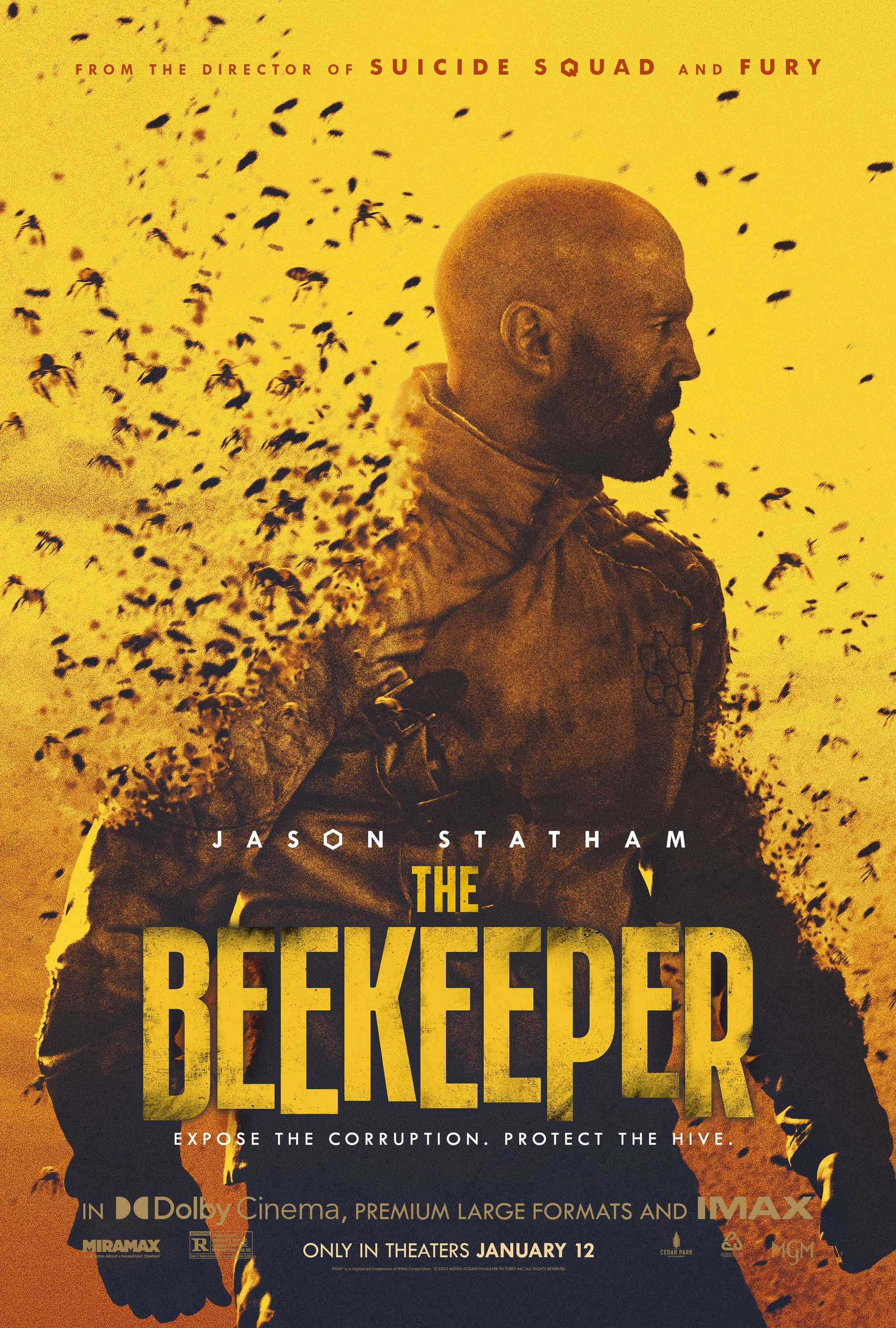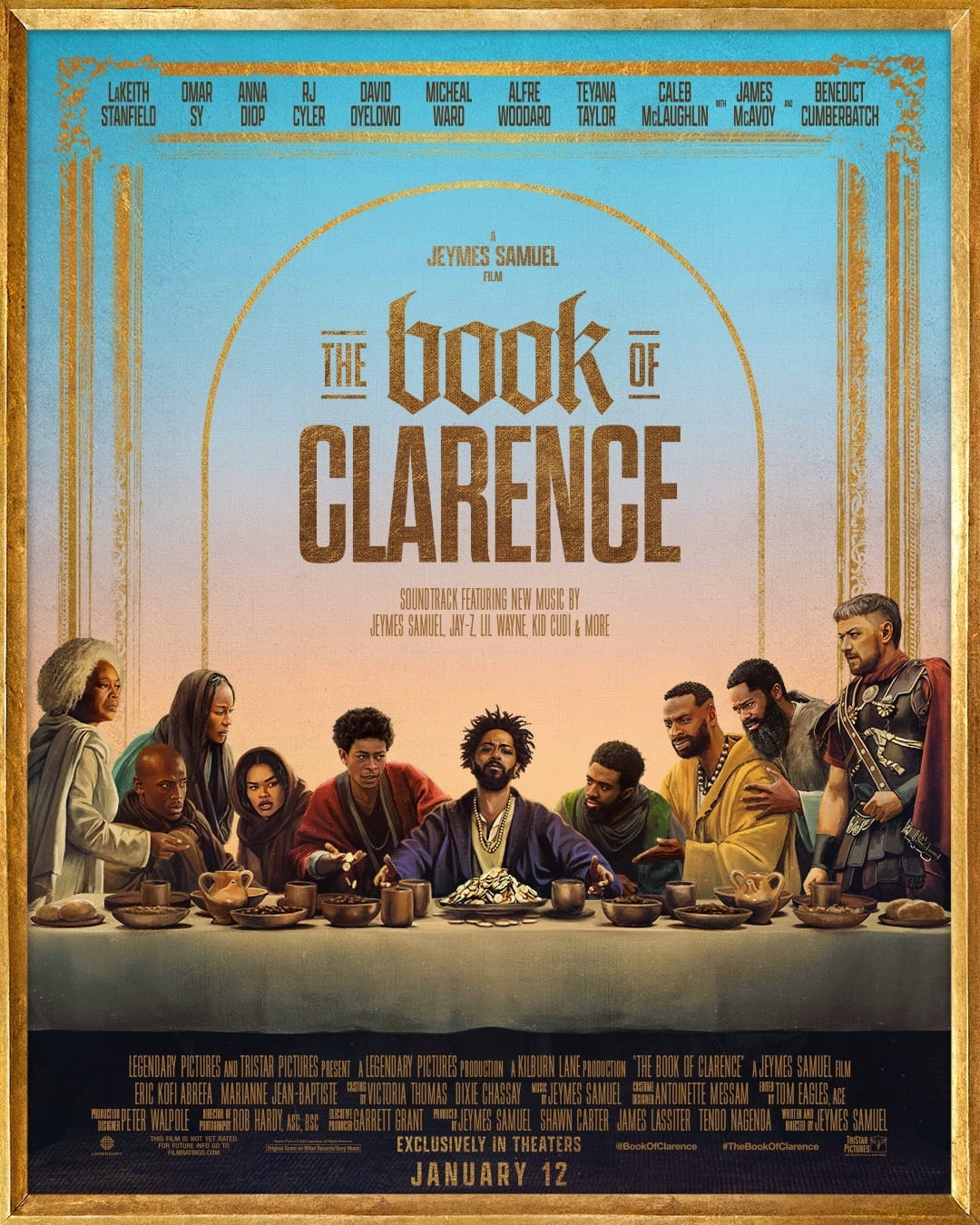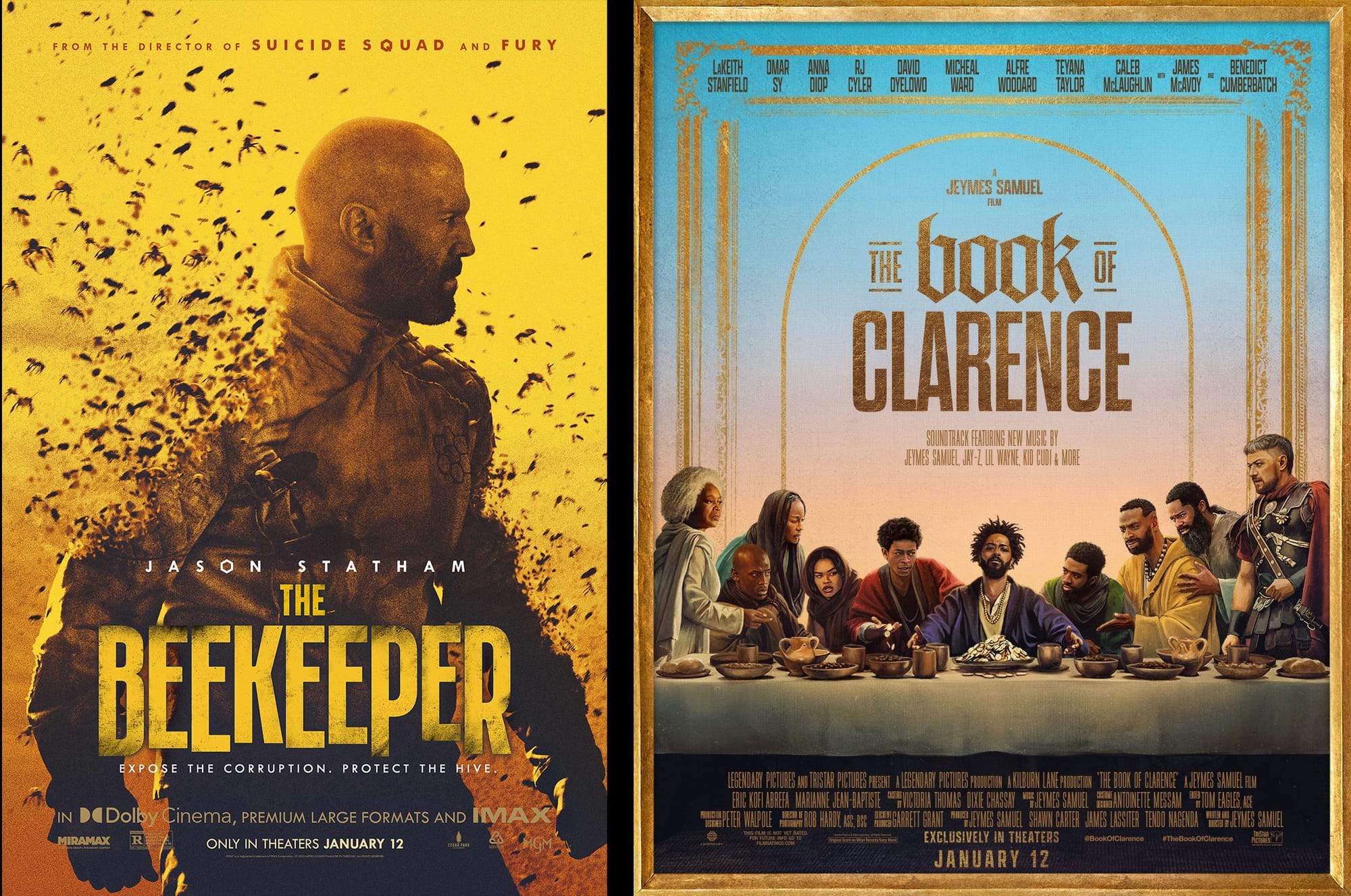
The Beekeeper
It’s the tail end of winter — that time of the year when Hollywood goes rummaging in the barrel for undemanding hokum to keep movie-goers distracted from the post-holiday blues, and the latest vehicle for reliable action star Jason Statham, The Beekeeper, fits the bill perfectly. Without being disparaging, you know what you’re getting with a Jason Statham movie. He occupies that clearly-defined space once inhabited by the likes of Chuck Norris, Steven Seagal, and Jean-Claude Van Damme: lots of guns, lots of explosions, lots of scowling, and lots of Very Bad People™ for our hero to wipe out in entertainingly choreographed ways while we’re munching our popcorn.
The premise of the movie is the sort of thing one can imagine being pitched in the writers’ room after a particularly heavy liquid lunch: “People are, y’know, just like bees, right? Workers, drones, soldiers doing their thing. But what happens when some of ‘em are, like, not doing their jobs? That’s when you need a beekeeper.” And that, basically, is the conceit upon which the movie rests.
Enter Statham as the titular ‘beekeeper’, albeit a retired one. Going by the name of Adam Clay, he is living quietly in the barn of a retired schoolteacher and (you guessed it) keeping bees. In a heartbreaking opening sequence, his elderly landlady falls victim to a vicious internet phishing scam, and loses her life savings, including $2 million from the account of a children’s charity she manages. Distraught at the loss, she dies by suicide. Discovering her body, Clay sets out to wreak vengeance on the scammers and their bosses, thus restoring balance to ‘the hive’.
It’s never made quite clear who the beekeepers are or who they answer to, but they fall into the category of black ops so black that not even the FBI or CIA have heard of them, which is a convenient plot device when the remit is simply to write a killing machine played by Jason Statham. Clay’s character is a single-note mashup of Hitman’s Agent 47, the Terminator, and John Wick (but lacking the panache and empathy of Keanu Reeves). That said, the writers have been thoughtful enough to write a part which gives Statham free reign to display both of the emotions within his range: dark, brooding and angry; and dark, brooding and very angry.
Insofar as the movie has a point to make, it does manage to supply some suitably odious villains in the form of the callous, morally-bankrupt crypto-bros that Clay spends most of the film dispatching with gusto. Admittedly, the message may be ‘something something unfettered capitalism bad’, but it still manages to resonate, even if it is written in crayon rather than cursive. The plot has more holes in it than a depleted honeycomb, but this is not a film that set out to win any Oscars, anyway. As late winter movie comfort food, it ticks all the boxes, including a setup for a potential sequel. Grab a soda, put your brain in neutral, and enjoy.

The Book of Clarence
There are few subjects more capable of attracting controversy to a filmmaker than biblical satire. It’s been almost half a century since the Monty Python team caused a global outbreak of Christian apoplexy with the release of their irreverent pastiche of the biblical Passion, Life Of Brian, and the intervening 45 years have seen a distinct paucity of directors willing to dip a toe into that particular piranha-filled comedic puddle.
Enter English writer-director-songwriter Jeymes Samuel, who has opted to dive into said puddle head-first with his latest offering, The Book of Clarence. The setting is (of course) Jerusalem in 33 CE, and ganja-dealer, stoner and general layabout Clarence (LaKeith Stanfield) is in a ton of trouble. Having bet (and lost) a pile of cash in a chariot race with the city’s speed queen Mary Magdalene, he now owes repayments to local gangster Jedediah The Terrible, under threat of crucifixion.
With no way to raise the money, Clarence seeks out his brother Thomas, who has become an apostle of some guy from Nazareth who’s been going around the city claiming to be the Messiah. Clarence even attempts to feign conversion to the faith and become the 13th Apostle in a hilarious scene with John The Baptist (David Oyelowo), but is contemptuously rebuffed. Clarence then has a ‘lightbulb moment’ during a heavy opium-smoking session and hits on the idea of breaking Jesus Christ’s monopoly on the Messiah business, and sets himself up as a sort of secular, miracle-free saviour. Needless to say, complications ensue.
This brief summary would suggest the film is little more than a retread of Life of Brian, but there’s a twist: Samuel has chosen to portray the entire Jewish population of Judea (including Jesus himself) as Black / African-American, and the occupying Roman forces as white Europeans. It’s an extraordinarily bold move in today’s febrile social climate, and it has the effect of shifting the film’s focus from a religious satire to a commentary on white supremacy. Fundamentally, this movie is not a critique of Christianity; quite the reverse, in fact. In its final act, the script adopts a spiritual tone which affirms the faith of a Christian audience rather than questioning it.
It is this devotional switch which ultimately results in a film which can’t quite decide what it’s trying to say. The broadly-comedic first half is laden with some true laugh-out-loud moments, and the soul / funk / R&B soundtrack creates a mood which isn’t so much Life of Brian as Straight Outta Bethlehem. The idea of the atheist prophet Clarence going head-to-head with Jesus and actually winning the argument is revolutionary, which makes the film’s final affirmation of Christianity feel almost like a cop-out. That said, the final act features a couple of scene-stealing cameos from James McAvoy and Benedict Cumberbatch, the latter of which sets up a 2024-year-old joke which is still being played on the entire Christian world.Ultimately, this movie is far less controversial than its premise would suggest, but it does stand out as a thought-provoking contemporary reflection on the New Testament — with some surprisingly good jokes.
Recently arrived in the Tri-Cities from Scotland, I'm a former freelancer who wrote music and movie reviews for UK websites.

